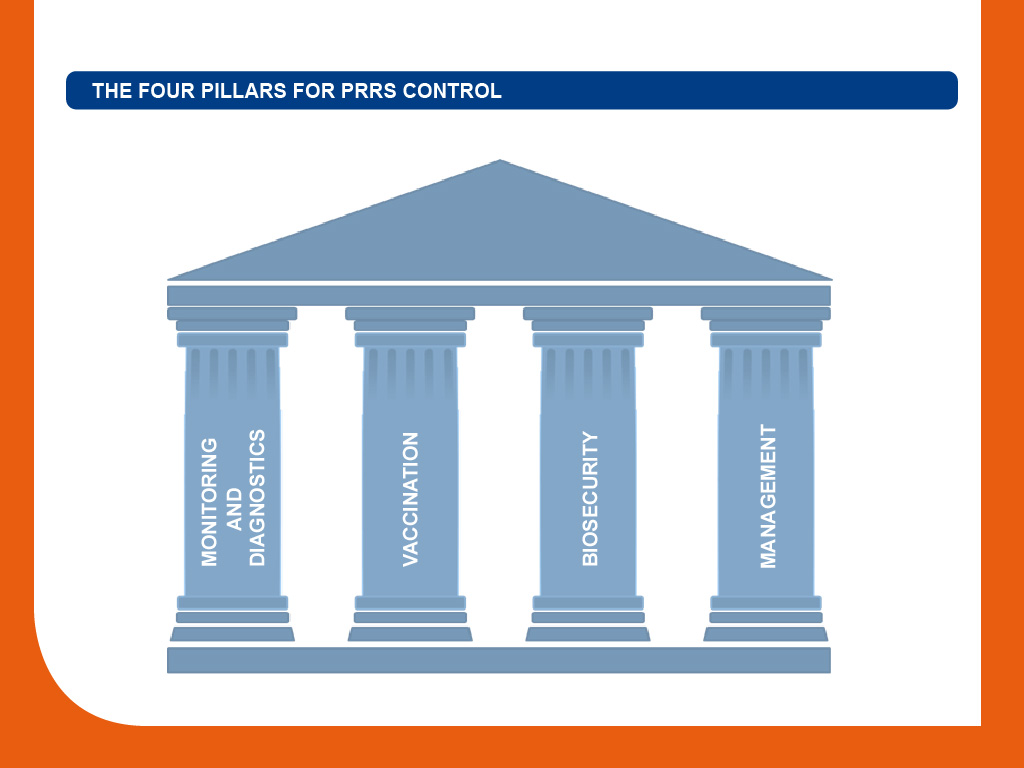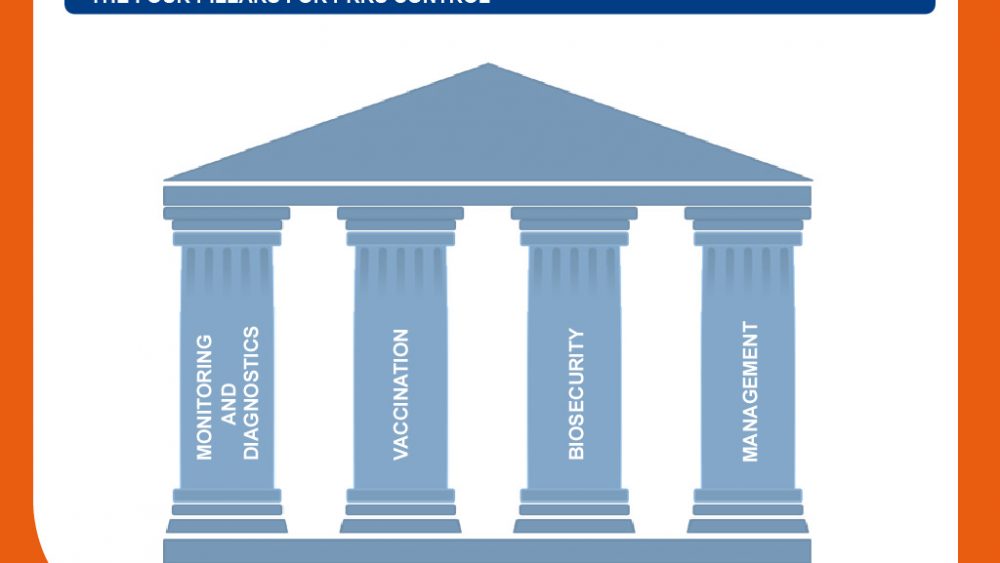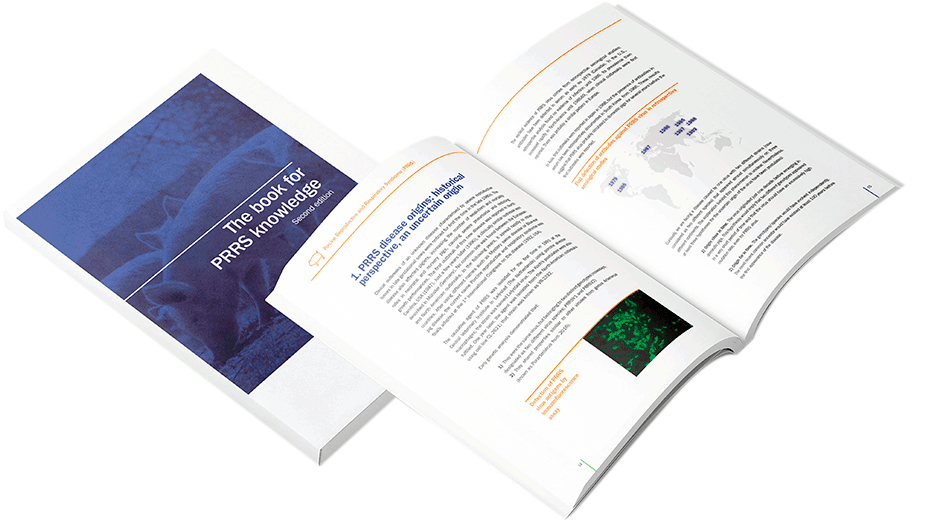In Spain we are having many problems with highly pathogenic PRRSV1 strains, and the vaccines do not seem to work at all. Would it be recommended to stop vaccinating sows and piglets in these cases?
The PRRS vaccine has been frequently used for therapeutic rather than prophylactic purposes, with variable results.
The problem with this application is that when animals infected with a wild-type virus are vaccinated with a live vaccine, the possibility of both viruses (wild-type and vaccine) infecting the same cell increases and with it, the possibilities of creating strains that combine genetic material from both viruses (recombinants). This is being seen more frequently when vaccines are used in cases of infections with highly virulent strains.
These strains have a characteristically high substitution rate (probability of undergoing changes in their genome) hence the increased risk of creating recombinants.

The four pillars of PRRS control: monitoring, vaccination, biosecurity, and proper management.
A less risky vaccination policy, in cases of disease outbreaks caused by highly virulent strains, would be to use inactivated vaccines when the virus is still actively circulating. The idea is to boost the generated immunity to the wild virus and thereby accelerate the reduction of viral load on the farm.
Once the viral load has been reduced, the use of attenuated vaccines could be reconsidered. This change would provide safety in vaccination and most likely reduce the creation of new recombinant strains.
If you want to know more about the use of PRRSV vaccines, read out the chapters “In an outbreak of PRRS with clinical symptoms, are modified live vaccines recommended?” and “Vaccination of piglets against PRRS: why, when, and how”.

Marcovetgrup S.L. – Spain





Comments are closed.